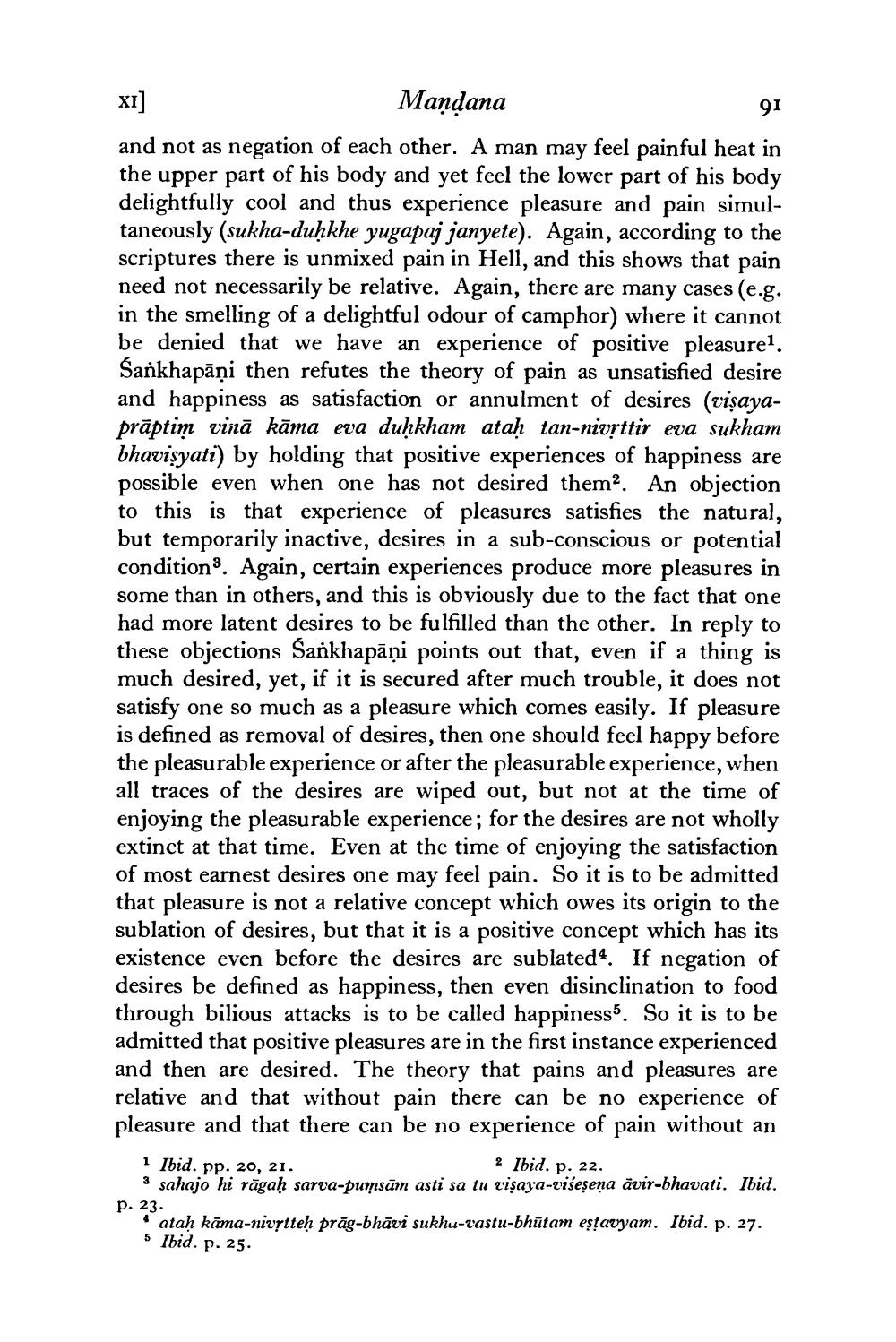________________
XI]
Mandana
91
and not as negation of each other. A man may feel painful heat in the upper part of his body and yet feel the lower part of his body delightfully cool and thus experience pleasure and pain simultaneously (sukha-duḥkhe yugapaj janyete). Again, according to the scriptures there is unmixed pain in Hell, and this shows that pain need not necessarily be relative. Again, there are many cases (e.g. in the smelling of a delightful odour of camphor) where it cannot be denied that we have an experience of positive pleasure1. Sankhapāņi then refutes the theory of pain as unsatisfied desire and happiness as satisfaction or annulment of desires (visayapraptim vinā kāma eva duḥkham ataḥ tan-nivṛttir eva sukham bhavisyati) by holding that positive experiences of happiness are possible even when one has not desired them2. An objection to this is that experience of pleasures satisfies the natural, but temporarily inactive, desires in a sub-conscious or potential conditions. Again, certain experiences produce more pleasures in some than in others, and this is obviously due to the fact that one had more latent desires to be fulfilled than the other. In reply to these objections Sankhapāņi points out that, even if a thing is much desired, yet, if it is secured after much trouble, it does not satisfy one so much as a pleasure which comes easily. If pleasure is defined as removal of desires, then one should feel happy before the pleasurable experience or after the pleasurable experience, when all traces of the desires are wiped out, but not at the time of enjoying the pleasurable experience; for the desires are not wholly extinct at that time. Even at the time of enjoying the satisfaction of most earnest desires one may feel pain. So it is to be admitted that pleasure is not a relative concept which owes its origin to the sublation of desires, but that it is a positive concept which has its existence even before the desires are sublated. If negation of desires be defined as happiness, then even disinclination to food through bilious attacks is to be called happiness5. So it is to be admitted that positive pleasures are in the first instance experienced and then are desired. The theory that pains and pleasures are relative and that without pain there can be no experience of pleasure and that there can be no experience of pain without an
2 Ibid. p. 22.
1 Ibid. pp. 20, 21.
3 sahajo hi ragaḥ sarva-pumsām asti sa tu viṣaya-viseşena ävir-bhavati. Ibid.
p. 23.
ataḥ kāma-nivṛtteḥ prāg-bhāvi sukhu-vastu-bhūtam eṣṭavyam. Ibid. p. 27. 5 Ibid. p. 25.




